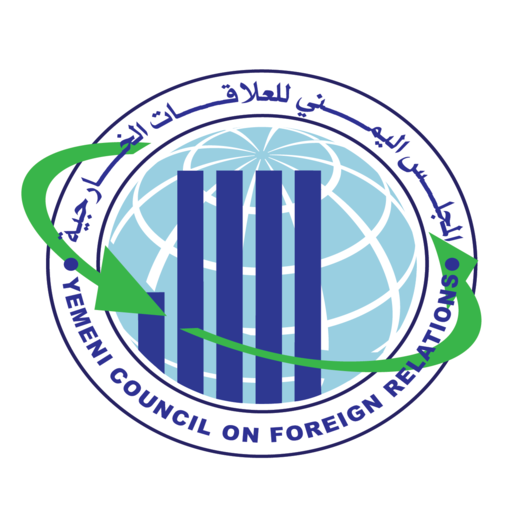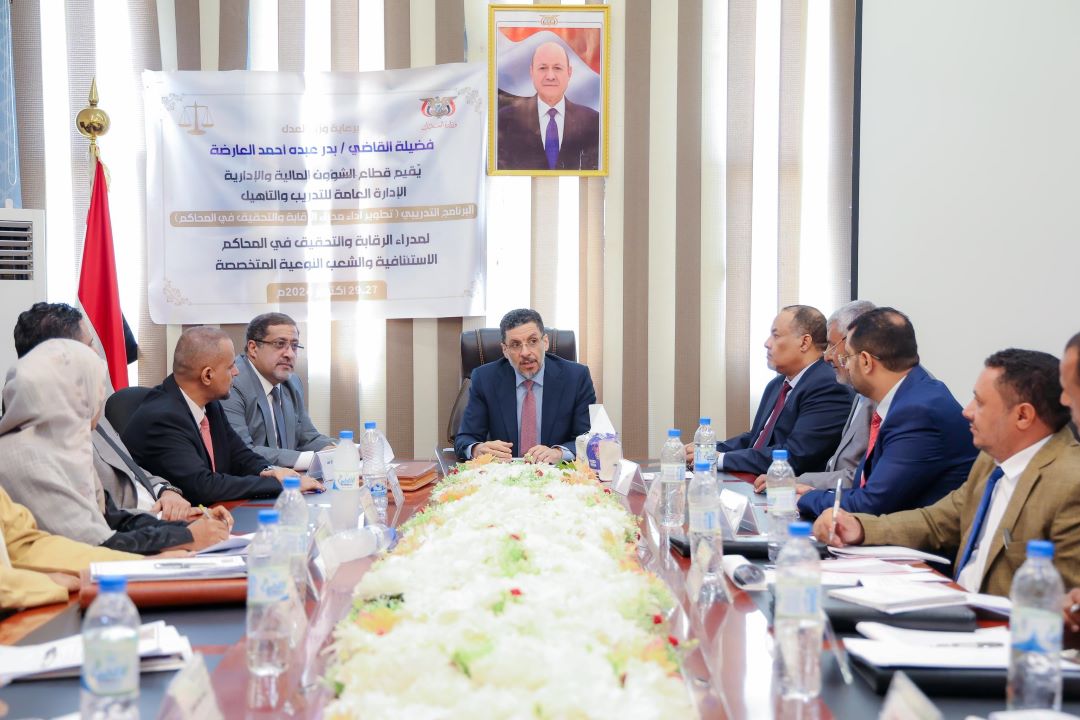Source: Prime Minister’s Office
Prime Minister Dr. Ahmed Awad bin Mubarak emphasized the pivotal and crucial role of oversight, investigation, and internal review departments in dealing with issues of financial and administrative corruption, considering their outputs as the inputs upon which the courts operate.
This statement was made during his attendance at the Ministry of Justice in the temporary capital Aden on Tuesday, where he concluded the training program for directors of oversight and investigation departments in the Courts of Appeal in the liberated governorates and specialized courts, titled “Enhancing the Performance of Oversight and Investigation Directors in Courts,” which lasted three days with 25 participants from the concerned parties in the liberated governorates.
Dr. Ahmed Awad bin Mubarak highlighted the importance of the training program’s topic, which is a fundamental issue and a top priority among the government’s five priorities: financial and administrative reform, combating corruption, and enhancing transparency and accountability. He stressed treating corruption as a matter and responsibility, and the importance of everyone, especially the judiciary, realizing their duties in confronting all forms of transgression, whether in corruption cases or in matters of rights and freedoms.
The Prime Minister emphasized the responsibility of the trainees in the program to prepare corruption cases correctly for referral to the courts, to overcome existing institutional challenges, and to apply the knowledge and skills they have acquired to ensure proper procedure execution. He noted that the work of oversight and investigation department officials forms the basic inputs for the prosecution of the corrupt, highlighting their doubled responsibilities in combating the scourge of corruption, not just administratively, but as a national, moral, and religious duty.
Dr. Ahmed Awad bin Mubarak pointed out that corruption does not only involve misappropriation of public funds but extends to neglecting duties and tasks as another form of corruption. He stressed that there is no protection for any corrupt individual regardless of their level or position, and everyone must have a clear stance in upholding the rule of law and not allowing violations.
The Prime Minister applauded the efforts of those working responsibly and with professional conscience to combat corruption, emphasizing the importance of everyone recognizing their responsibilities in this regard, the need for continuous coordination and integration of efforts among the executive, legislative, and judicial branches to develop mechanisms to reduce corruption and punish the corrupt. He expressed gratitude to the judges who conducted the training and to the trainees representing all the liberated governorates, stressing the necessity of translating the knowledge and information received into their performance and work.

